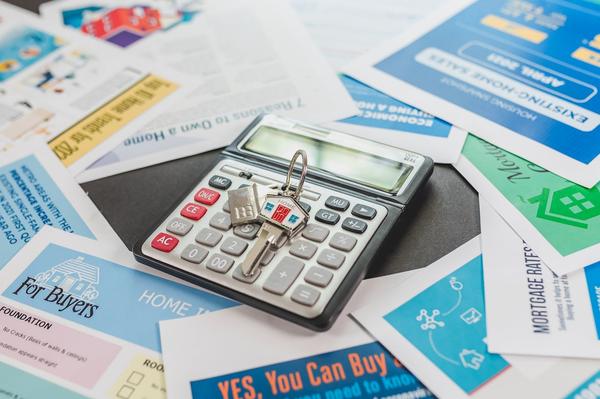Timing the Market: When Is the Best Time to Sell Your Home?

Selling a home is a major decision, and timing the market can make a big difference in how quickly your home sells and the price you get for it. While the best time to sell a home depends on various factors, including location and market trends, understanding seasonal trends and economic conditions can help you maximize your return. Let’s break down the key considerations for choosing the optimal time to list your home.
The Best Seasons to Sell Your Home
Real estate markets are often influenced by seasonality, with certain times of the year being more favorable for sellers.
Spring: The Peak Selling Season
Spring is widely regarded as the best time to sell a home due to increased buyer demand.
Why spring is ideal:
- Warmer weather encourages more home tours and open houses.
- Families want to move before the next school year begins.
- Homes show better with blooming flowers and green lawns.
- Increased competition can lead to higher sale prices.
- Warmer weather encourages more home tours and open houses.
- Families want to move before the next school year begins.
- Homes show better with blooming flowers and green lawns.
- Increased competition can lead to higher sale prices.
Pro Tip: Listing your home in March, April, or May can lead to quicker sales and better offers.
Summer: Strong Market, but More Competition
Summer can also be a great time to sell, though competition is high as more homes enter the market.
Why summer works:
- Buyers who didn’t purchase in spring are still looking.
- Longer daylight hours mean more home showings.
- Many buyers want to finalize a deal before school starts.
Why summer works:
- Buyers who didn’t purchase in spring are still looking.
- Longer daylight hours mean more home showings.
- Many buyers want to finalize a deal before school starts.
Potential drawbacks:
- Higher temperatures in some areas may discourage house-hunting.
- Vacation season can slow down activity in certain regions.
Fall: A Hidden Opportunity
While demand typically slows in fall, serious buyers remain active in the market.
Why fall can be a good time to sell:
- Less competition as many sellers list in spring and summer.
- Cooler temperatures make house-hunting more comfortable.
- Buyers who missed out in the summer are still looking.
Why fall can be a good time to sell:
- Less competition as many sellers list in spring and summer.
- Cooler temperatures make house-hunting more comfortable.
- Buyers who missed out in the summer are still looking.
Pro Tip: Focus on curb appeal by keeping the yard clean and using seasonal decorations.
Winter: The Slowest Season, but With Motivated Buyers
Winter is traditionally the slowest season for home sales, but that doesn’t mean it’s a bad time to sell.
Why winter sales can work:
- Fewer listings mean less competition.
- Buyers in the market are highly motivated.
- Year-end job relocations create demand.
Challenges of selling in winter:
- Colder weather and shorter days make showings less appealing.
- Some buyers pause their search for the holidays.
Why winter sales can work:
- Fewer listings mean less competition.
- Buyers in the market are highly motivated.
- Year-end job relocations create demand.
Challenges of selling in winter:
- Colder weather and shorter days make showings less appealing.
- Some buyers pause their search for the holidays.
Market Conditions That Affect Timing
Beyond seasons, real estate market conditions play a crucial role in determining the best time to sell.
1. Mortgage Interest Rates
Lower interest rates encourage buyers to enter the market, while higher rates may reduce buyer demand.
2. Supply and Demand
A seller’s market (low inventory, high demand) means you can sell quickly and at a higher price. A buyer’s market (high inventory, low demand) may require price adjustments or incentives.
3. Economic Factors
A strong economy with low unemployment and rising wages boosts buyer confidence, making it an excellent time to sell.
1. Mortgage Interest Rates
Lower interest rates encourage buyers to enter the market, while higher rates may reduce buyer demand.
2. Supply and Demand
A seller’s market (low inventory, high demand) means you can sell quickly and at a higher price. A buyer’s market (high inventory, low demand) may require price adjustments or incentives.
3. Economic Factors
A strong economy with low unemployment and rising wages boosts buyer confidence, making it an excellent time to sell.
Final Thoughts
While spring and early summer are generally the best times to sell, market conditions and personal circumstances should also influence your decision. Monitoring local trends, mortgage rates, and economic conditions will help you choose the best time to list your home for maximum profit.
Thinking of selling your home? Consult a real estate professional to get expert advice tailored to your local market!
Thinking of selling your home? Consult a real estate professional to get expert advice tailored to your local market!
Categories
Recent Posts

The “Silent Dealbreaker”: Hidden Issues That Turn Buyers Away Before the Offer Stage

When to Stage and When to Save: ROI-Based Home Presentation Tips

Prepping for Multiple Offers: How to Position Your Home for a Bidding War

Modern Buyers, Modern Expectations: Features That Seal the Deal in 2025

The "Back Pocket Offer": How to Attract Serious Buyers Before You Even List

Downsizing with Dollars in Mind: How to Sell Big and Buy Smart in One Move

Your Home’s Digital First Impression: Listing Copy & Photo Strategies That Sell

The Tenant Factor: How Occupied Properties Can Still Sell for Top Dollar

When Zillow Isn’t Enough: Why Professional Pricing Still Wins in 2025

The Smarter Seller’s Checklist: What to Do 30, 60, and 90 Days Before You List
GET MORE INFORMATION

